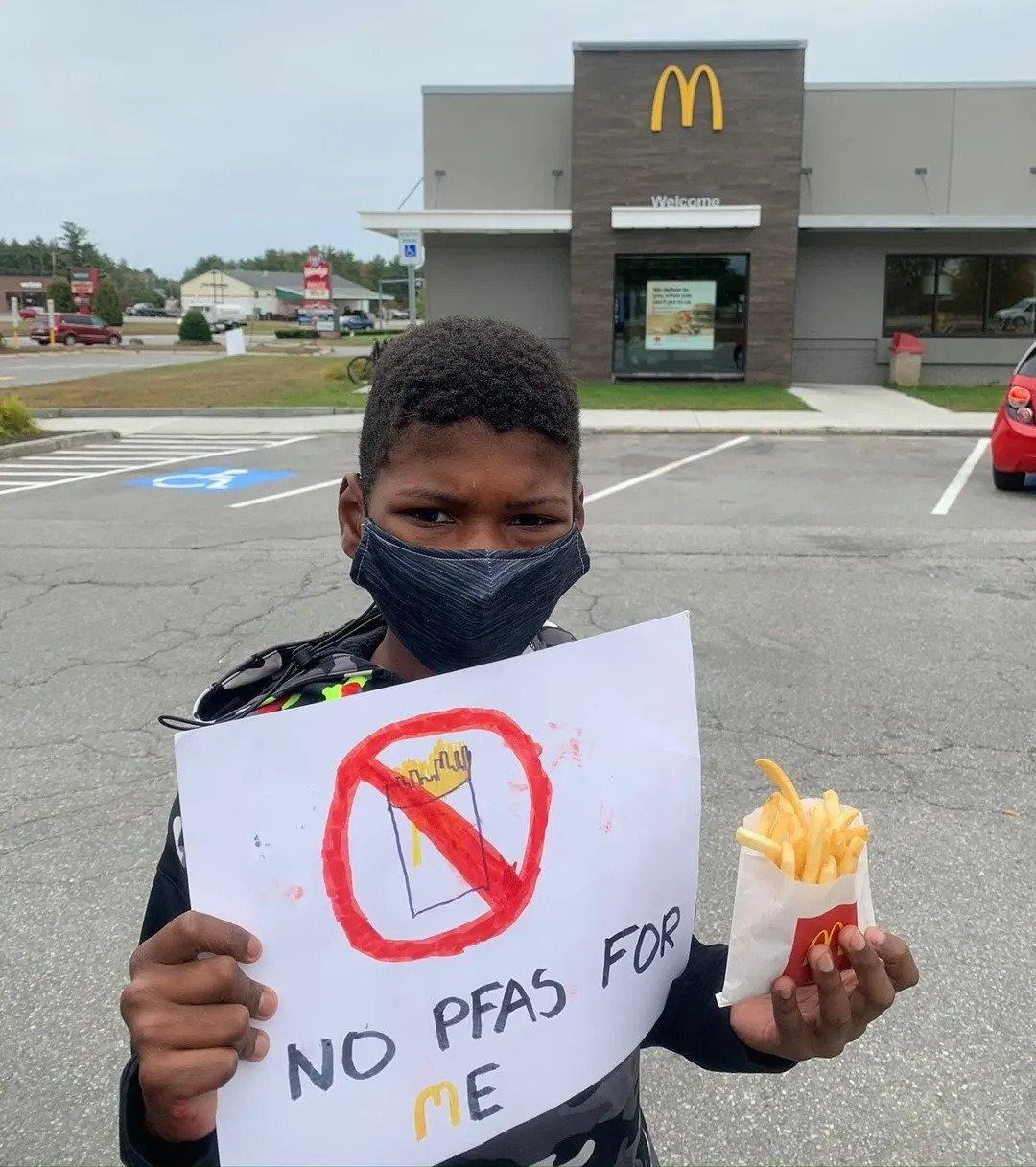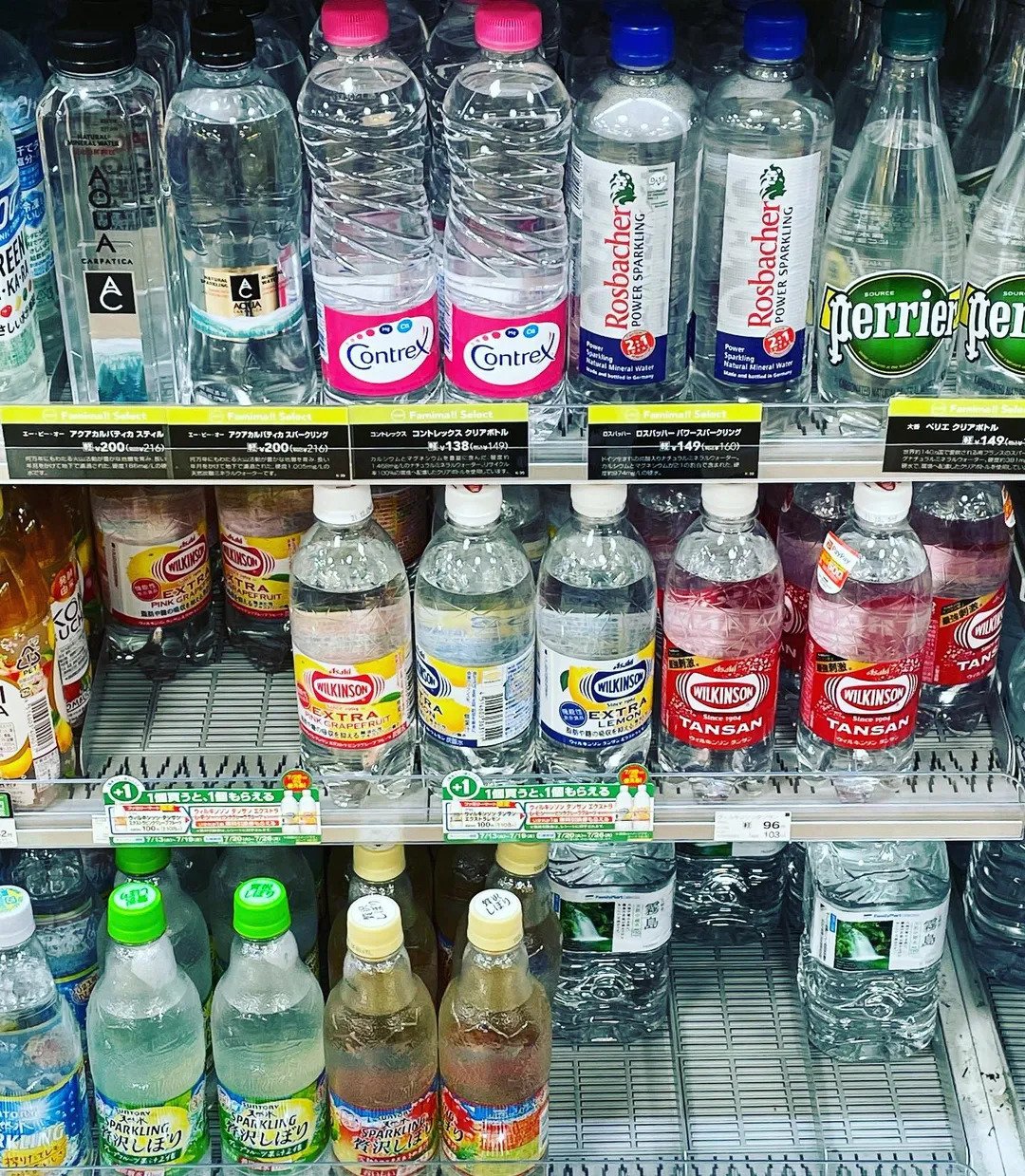Forever Chemicals In Almost Anything? What To Do?
Forever chemicals are both harmful and beneficial to people. Harmful because they can cause different kinds of health problems, including cancer. Beneficial because they are used in several important products, such medical equipment. How can people deal with these two conflicting matters?
Author:Karan EmeryReviewer:Stefano MclaughlinAug 24, 202218.6K Shares379.7K Views

As hopeless romantics pursue their search for lasting love, there’s an alarming issue that the global populace should care about: forever chemicals.
Two words. One massive concern.
And each of those couple of words can signify either something positive or negative.
In this case, the “forever” and the “chemical” in “forever chemicals” both lead to something ugly.
Even fatal.
The air freshener in your car has chemicals, too.
And so is your trusted everyday deodorant.
What are these forever chemicals and what can we do about them?

Forever chemicals: The threat of PFAS in our water
Forever Chemicals Meaning
The technical term or the right name for forever chemicals are per/poly-fluoroalkyl substances or PFAS for short.
Here’s a definition from the U.S. National Institute of Environmental Health Sciences (NIEHS):
“„[Perfluoroalkyl and polyfluoroalkyl substances or] PFAS are a large, complex group of manufactured chemicals that are ingredients in various everyday products.
PFAS are synthetic chemicals - meaning, they’re man-made - that are used by people in assorted ways.
Because humans created forever chemicals, they don’t exist in nature.
And this piece of information is what exactly makes things complicated and disturbing.
For nature can’t do anything to “destroy” them.
In other words, forever chemicals don’t break down.
According to the Chemicals, Health and Environment Monitoring Trust (CHEM Trust) from the U.K., PFAS belong to a huge family of chemicals.
There are 9,000 of them.
People make PFAS because they benefit from them in several ways.
For example, PFAS help medical professionals, they protect firefighters, and they generate profits for businesses.
They are used to store foods and to keep the pizza you ordered online warm upon delivery.
Would you believe, forever chemicals also ensure hassle-free cooking - even plaque-free teeth?
Oh, yes, they do.
Yet, they’re bad?
Yes. They can be good; they can be bad.
PFAS can be both.
Forever chemicals can be detrimental to people’s health.
With that said, they still get used - and continuously produced.
Perhaps people believe the purpose PFAS serve outweighs the possible problems.
Or, it could be that people are not that fully aware about the harm forever chemicals can inflict on them.
While those who know (such as their manufacturers) never cared at all?
Yes! A resounding “Yes!”
Case in point: DuPont.
DuPont And PFAS
Wilmington-based American company DuPont (DuPont de Nemours, Inc.) is one of the biggest manufacturers of chemicals in the world.
It traces its beginnings when it was still E.I. du Pont de Nemours and Company, a 19th-century gunpowder factory in Wilmington, Delaware.
Eleuthere Irenee du Pont (1771-1834), a French chemist who resided in the U.S. starting in 1799, founded it in 1802.
Fast forward to 1946.
DuPont started selling a cookware that promises not to make food stick while being cooked on it.
Before making that cookware, DuPont first created forever chemicals that the company patented under the name “Teflon,” according to the Environmental Working Group (EWG).
This Teflon is the coating that makes DuPont’s cookware non-stick.
EWG noted that DuPont knew that Teflon, as one type of PFAS, was dangerous.
It was only in 2001 that it was discovered that DuPont would discard forever chemicals in West Virginia’s 981-mile-long Ohio River.

EPA Forever Chemicals List
As part of safeguarding public health and the environment, the U.S. Environmental Protection Agency (EPA) launched a program called Toxics Release Inventory (TRI).
The TRI program monitors activities that may involve the use of toxic chemicals, such as forever chemicals.
The EPA requires companies and government facilities in America to report to the TRI the PFAS they use.
As of January 2020, the EPA identified 160 PFAS that needed to be reported to the TRI.
- hexafluoropropylene oxide dimer acid (GenX)
- perfluorohexanesulfonic acid (PFHxS)
- perfluorononanoic acid (PFNA)
- perfluorooctanoic acid and its salts (PFOA)
- perfluorooctane sulfonic acid and its salts (PFOS)
The aforementioned PFAS, including the other 155 on EPA’s list, can be found in:
- shoes
- semiconductors
- sticky notes
Bloomberg named W. L. Gore & Associates in Delaware and Michigan-based footwear manufacturer Wolverine World Wide as those that use PFAS.
Gore particularly uses forever chemicals in making the following:
- protective outerwear for firefighters
- workwear for industrial workers
- medical products (e.g., implantable medical devices)
How To Avoid Forever Chemicals?
It would be difficult to avoid forever chemicals as they are present in food and consumer products.
For example, PFAS are found in:
- carpets
- non-stick cookware
- certain brands of dental floss
- food packaging (e.g., pizza boxes, food containers for takeout orders, popcorn bags)
Based on these examples, you can avoid forever chemicals by not purchasing carpets.
As for non-stick cookware, use these alternatives:
- ceramic-coated pans
- pans made of cast iron
- stainless steel pans
You may consider bringing your own PFAS-free food containers; so, when there’s takeout food, you can place them there.
Avoid buying cooked popcorn. Just make your own.
Per BuzzFeed News, don’t buy these dental floss products because they contain forever chemicals:
- Colgate Total Dental Floss Mint
- Crest Glide Deep Clean Cool Mint Floss
- CVS Health Waxed Dental Floss
- Oral-B Glide Pro-Health (Original and Mint)
- Safeway Signature Care Mint Waxed Comfort Floss

Forever Chemicals In Food
The Natural Resources Defense Council (NRDC), an environmental group from New York, stated that PFAS can contaminate bodies of water and soil.
That means the baked salmon or the steak you ordered for dinner may have forever chemicals in them.
Two likely scenarios:
- The salmon - or any other fish for that matter - might be swimming in a PFAS-contaminated water.
- Or the cow - or any grass-eating farm animal - munched on grasses growing in a PFAS-contaminated soil.
You get the picture?
In a 2019 article, NRDC presented an infographic about the result of an action taken by the U.S. Food and Drug Administration (FDA).
The FDA discovered the presence of forever chemicals in these foods that it tested:
- pineapples
- baked sweet potatoes
- lamb chops
- sausages
- ground turkey
- marine foods (e.g., catfish, cod, salmon, shrimp, tilapia)
- low-fat chocolate milk
As previously mentioned, food packaging contains PFAS.
Research scientist Justin M. Boucher, the operations director at the science organization Food Packaging Forum Foundation in Zurich, said:
“„We know that these substances migrate into the food you eat. It’s clear, direct exposure.
According to New York-based nonprofit organization Consumer Reports, several American fast-food restaurants pledged to stop using them.
For one, McDonald’s vowed to terminate their use by 2025.
These establishments use containers/wrappers/paper bags that have forever chemicals in them:
- Arby’s - cookie bag
- Burger King - cookie bag
- Cava - kids meal’s food tray
- Chick-fil-A - sandwich wrapper
- McDonald’s - french fries bag
- Nathan’s - side dishes bag
- Taco Bell - chips bag
Forever Chemicals In Water
We’re talking about bottled water here.
Researchers from Johns Hopkins University tested bottled waters sold in the U.S. for presence of PFAS, according to Consumer Reports.
In 2021, the scientific journal Water Researchpublished their study.
And based on the result, 39 out of 101 commercial bottled waters contain the dreaded forever chemicals.
In September 2020, Consumer Reports identified the top ten bottled water products that contain the highest PFAS levels as:
| Name of Bottled Water | Total PFAS (parts per trillion) |
| Topo Chico Natural Mineral Water | 9.76 |
| Polar Natural Seltzer Water | 6.41 |
| Tourmaline Spring Sacred Living Water | 4.64 |
| Bubly Blackberry Sparkling Water | 2.24 |
| Poland Spring Zesty Lime Sparkling Water | 1.66 |
| Canada Dry Lemon Lime Sparkling Seltzer Water | 1.24 |
| Deer Park Natural Spring Water | 1.21 |
| La Croix Natural Sparkling Water | 1.16 |
| Perrier Natural Sparkling Mineral Water | 1.1 |
| Schweppes Lemon Lime Sparkling Water Beverage | 0.58 |
It would be best to buy your own water purifier or water filtration device.
Not only can you save money and prevent plastic bottle usage, you can likewise avoid these forever chemicals from entering your body.
Forever Chemicals In Makeup
In 2021, The Guardian reported about researchers checking 231 cosmetic productsto see which ones have forever chemicals.
Among the cosmetics tested were from these popular global brands:
- Clinique
- Cover Girl
- Estée Lauder
- L’Oréal
- MAC
- Maybelline
However, in terms of which brands contain PFAS, the researchers decided not to specify them.
The journal Environmental Science & Technologypublished their study in 2021.
Of the 231 cosmetic products tested, 52 percent have high fluorine, one of those forever chemicals.
The detailed results, as published also by Science Direct, were these:
| Type of Makeup - Number of Tested Products | Percentage with High Fluorine |
| waterproof mascara (11) | 82 percent |
| liquid foundation and creams (43) | 63 percent |
| liquid lipstick (42) | 62 percent |
| eye shadow and eye liners (43) | 58 percent |
| bronzers and blush (30) | 40 percent |
People Also Ask
Why Is It Called Forever Chemicals?
It’s because PFAS tends to last forever.
As the American non-profit organization Clean Water Action also said, PFAS:
- “are extremely persistent”
- can exist for “thousands of years”
What Are The Dangers Of Forever Chemicals?
As hazardous chemicals, PFAS can cause:
- high cholesterol
- liver problems
- certain types of cancer (e.g., renal or kidney cancer, testicular cancer)
Among pregnant women, PFAS can:
- badly affect fetal development
- cause preeclampsia (hypertension as induced by one’s pregnancy)
USA Today reported that the forever chemicals perfluorooctanesulfonic acid (PFOS) and perfluorooctanoic acid (PFOA) can cause:
- thyroid disease
- ulcerative colitis (a type of inflammatory bowel disease)
Why Is Rainwater Not Safe For Drinking?
Rainwater, as reported by Indian Express, also gets contaminated with forever chemicals.
Aside from that, bacteria, germs, parasites, and viruses can be present in rainwater, according to Live Science.
Is It Safe To Boil Rainwater?
Boiling rainwater for one’s drinking consumption is not safe.
Though some of the bacteria or germs can be killed, boiling cannot remove chemicals such as PFAS in rainwater.
Conclusion
It seems there’s no escaping from forever chemicals because they appear to be present in almost everything.
From foods to clothes to certain furniture and equipment, PFAS can be there.
What to do then?
Use alternatives, widen your options, update yourself about news or advisories concerning products that possibly contain PFAS, and so on.
As what scientist Katie Boronow told BuzzFeed News in 2019:
“„It’s about choosing safer products.
Boronow, who earned her master’s degree in organismic and evolutionary biology from Harvard, discovered the PFAS in those dental floss products mentioned earlier.
As forever chemicals can outlive each one of us, let’s prolong our lives by avoiding them.

Karan Emery
Author
Karan Emery, an accomplished researcher and leader in health sciences, biotechnology, and pharmaceuticals, brings over two decades of experience to the table. Holding a Ph.D. in Pharmaceutical Sciences from Stanford University, Karan's credentials underscore her authority in the field.
With a track record of groundbreaking research and numerous peer-reviewed publications in prestigious journals, Karan's expertise is widely recognized in the scientific community.
Her writing style is characterized by its clarity and meticulous attention to detail, making complex scientific concepts accessible to a broad audience. Apart from her professional endeavors, Karan enjoys cooking, learning about different cultures and languages, watching documentaries, and visiting historical landmarks.
Committed to advancing knowledge and improving health outcomes, Karan Emery continues to make significant contributions to the fields of health, biotechnology, and pharmaceuticals.

Stefano Mclaughlin
Reviewer
Stefano Mclaughlin is a Psychologist focused on mental health, emotional well-being, and healthcare policy. He studied Psychology and Public Health at the University of Massachusetts Amherst, gaining a deep understanding of the intersection between mental health and public policy.
Stefano's mission is clear: he aims to destigmatize mental health discussions, improve access to mental healthcare, and promote emotional well-being for all. Drawing from personal experiences with anxiety and depression, Stefano shares real stories to make mental health topics more relatable and less intimidating.
In addition to his advocacy work, Stefano enjoys delving into books, experimenting in the kitchen, and embarking on new adventures. These hobbies fuel his creativity and inspire fresh perspectives for his advocacy work.
Latest Articles
Popular Articles




